Richard, My Richard
Shakespeare North Playhouse
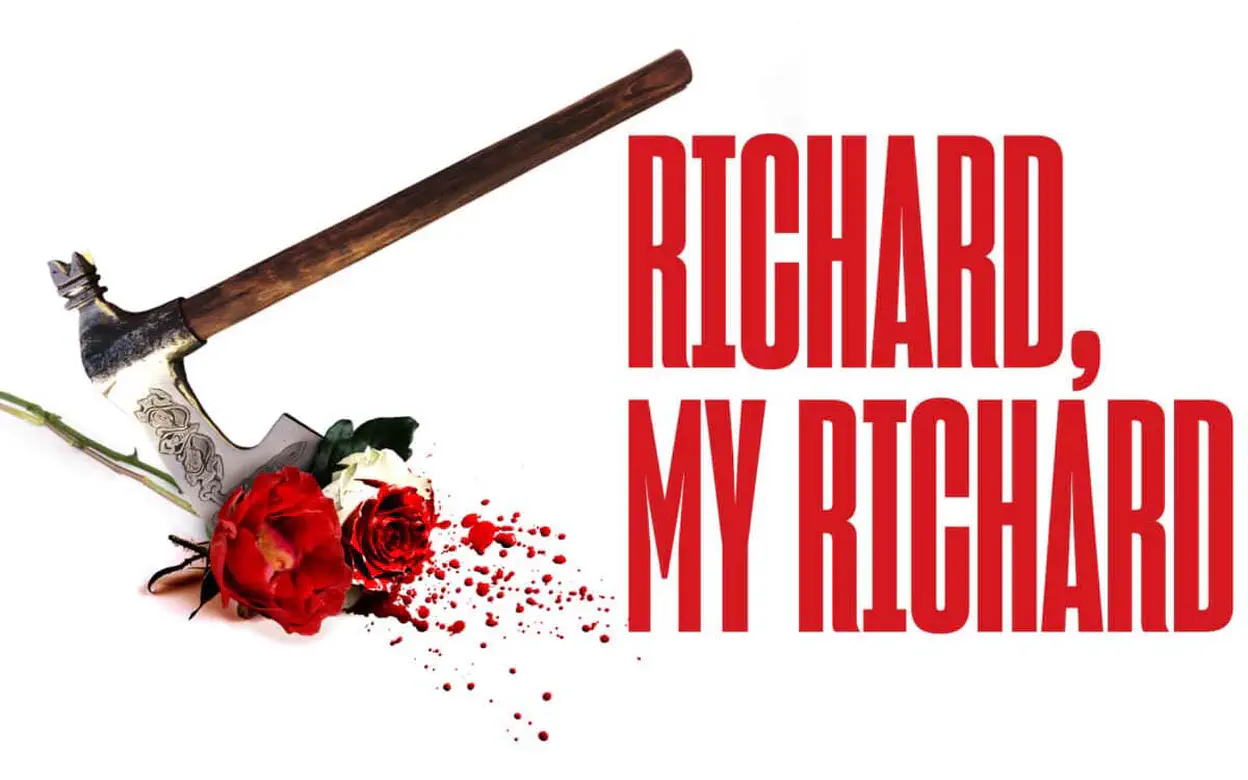
Richard III is one of the most infamous Kings of England. Known as a tyrant, a usurper, and portrayed by Shakespeare as a hunchback, Richard III is often synonymous with the murder of his nephews, The Princes in the Tower. But what if everything that you think you know about Richard III isn’t actually true? With history written by the victors, what if Richard was actually a loyal brother, a loving husband and a victim of the historical record being incorrect? This is the intriguing question that historian, author, and now playwright Philippa Gregory asks in her debut play Richard, My Richard.
Gregory is well known as an historical novelist, but this is her first foray into writing for the stage. Her works typically focus on the understated role of women within history, so a play about Richard III sounds like a complete shift, however, this is a play with multiple layers.
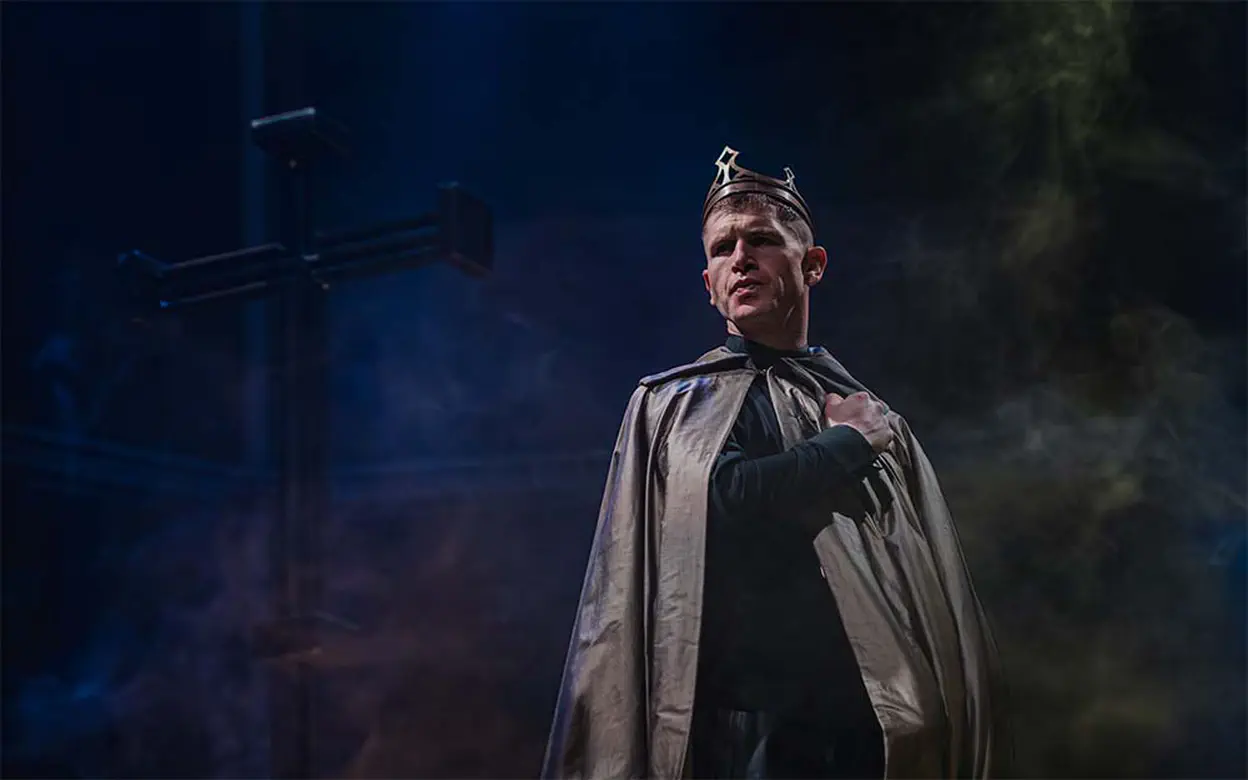
The play begins on the eve of Richard III’s body being discovered in a car park in Leicester. Richard (Kyle Rowe) emerges from the ground and comes face-to-face with History (Tom Kanji), who informs Richard of his legacy. To say that Richard is less than impressed is an understatement. He demands that History re-visit his life to look at the evidence, and to evaluate whether the current historical view is actually accurate. The rest of the play follows Richard’s life, with History guiding the audience as the narrator, whilst Richard interjects to highlight the elements that aren’t quite what they appear on the surface.
This play is spectacular. We enjoyed the show so much that after the first viewing we booked tickets to watch it again when we got home, and if we had the time in our calendar we would have watched it a third time. Without a doubt one of the best pieces of theatre we have ever watched.
There isn’t a huge cast within this production, but the casting is absolute perfection.
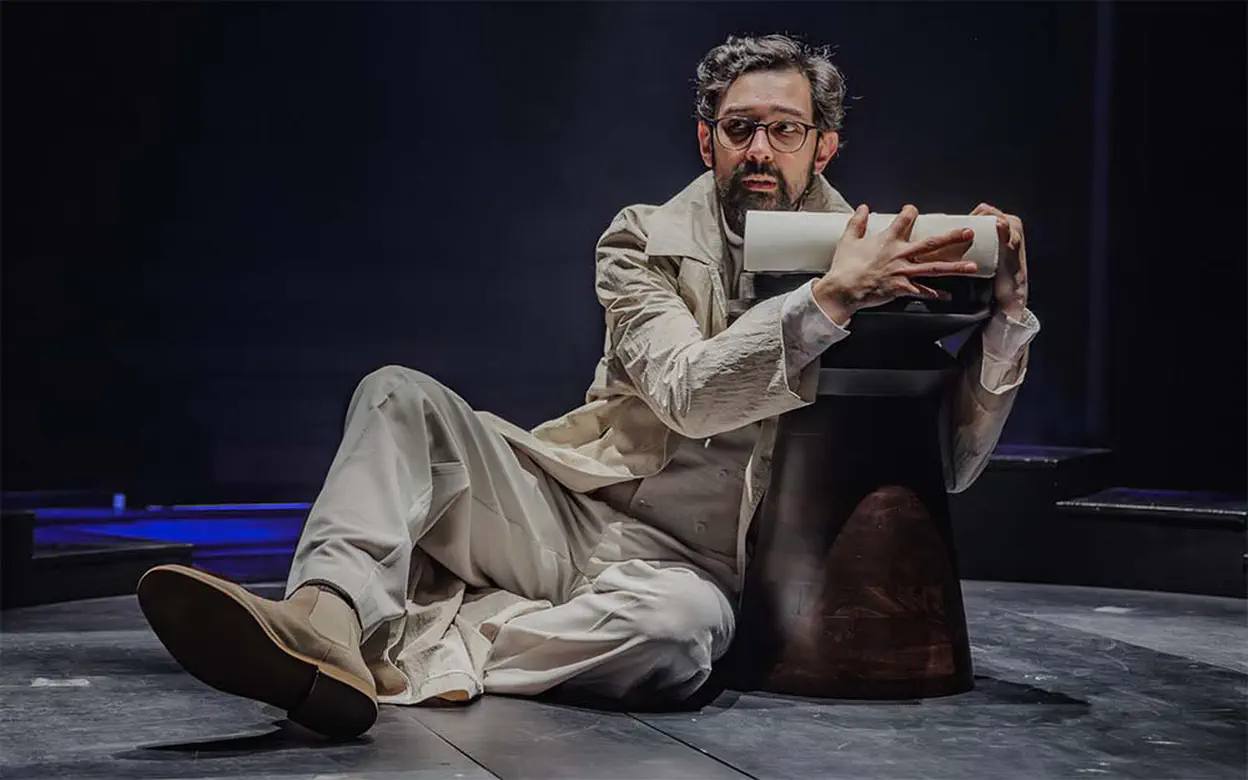
Kyle Rowe as Richard brought a natural air of authority to the role, and his exacerbation with History throughout the show was never over-exaggerated. He was the embodiment of a King, and kept the audience on their toes as he effortlessly switched between caring husband and battle-hardened warrior. The juxtaposition of Rowe’s Richard to Tom Kanji’s History was also impressive. Kanji began as a nerdy, Doctor Who-esque History who wanted to stick to the rules before becoming increasingly irate at the injustices of life and death. Kanji made the audience care and had a natural reassuring tone that made you trust him as a narrator despite the fact that very early on the point is made that history is unreliable as it’s written by the victors.
Richard’s brothers Edward (Matt Concannon) and George (Tyler Dobbs) are also brilliantly portrayed, with Concannon and Dobbs falling naturally into the older and younger brother roles. As a family unit when all three York sons are on stage they are entirely believable. The camaraderie and rivalry that make up any sibling relationship was apparent without appearing superficial; we really believed the three brothers had been in numerous battles together.
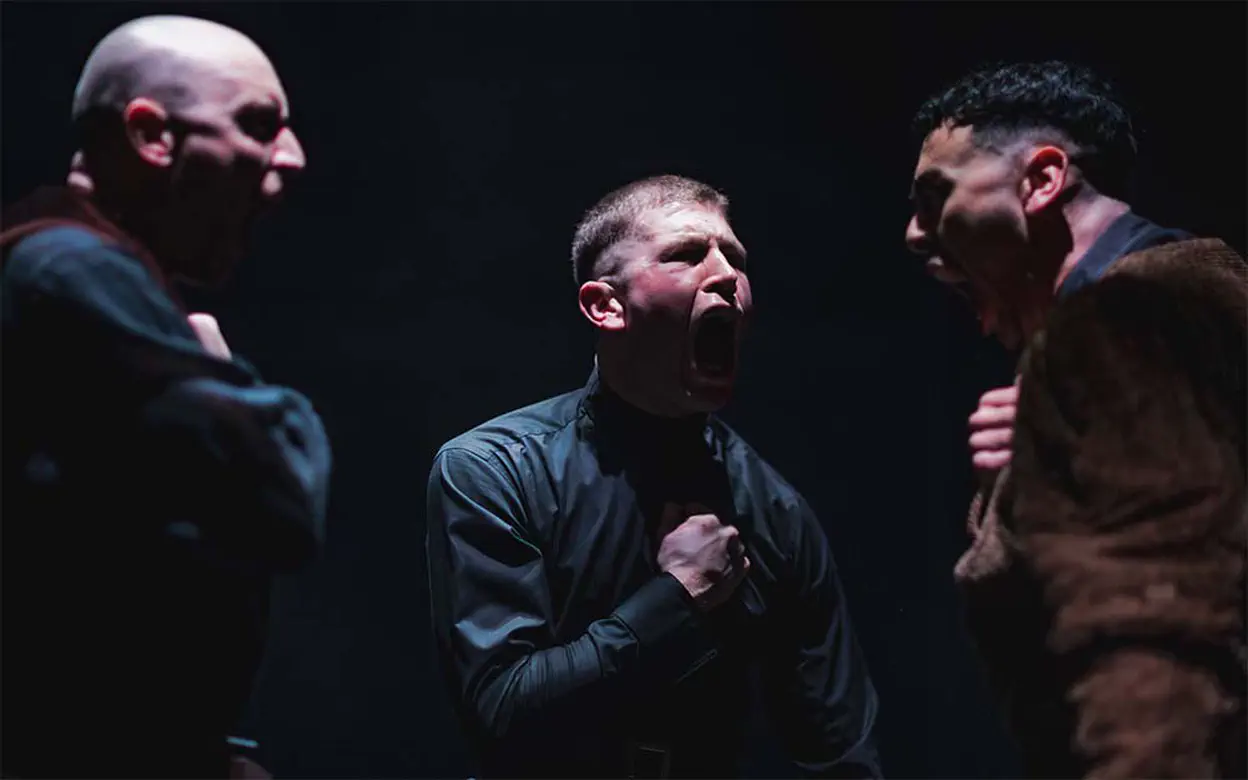
Both Concannon and Dobbs also play additional roles as Thomas Stanley and Buckingham respectively. These characters could not have been more different to the roles of Edward and George. Concannon’s shouts of “Sans Changer” and somewhat camp portrayal of Thomas Stanley was a clever way of highlighting the power that Stanley had in court at the time; he didn’t need to act like anyone else as he had the ear of both Lancasters and Yorks, plus the largest army.
The women of the piece had arguably the biggest challenge as they were playing characters that have been marginalised within history. Edward’s wife Elizabeth (Jennifer Matter), Richard’s wife Anne (Tori Burgess), Edward’s daughter Elizabeth (Mary Savage), and Margaret Beaufort (Laura Smithers) the Mother of Henry VII, and a blood heir to the throne albeit by a very small amount, were each given life through some excellent, nuanced and charismatic performances.
For us, Tori Burgess as Anne was a surprising performance. We have previously seen her in Tony Blair The Musical and thought she was fantastic in a comedic role, but she was even better in Richard, My Richard. There was an authenticity to her performance which is hard to describe. Her pleading with Richard to marry her, and the way she moved across the stage towards the end of Anne’s life were both beautifully sad, with an undercurrent of determination. There was no mistaking the character’s struggles through her performance.
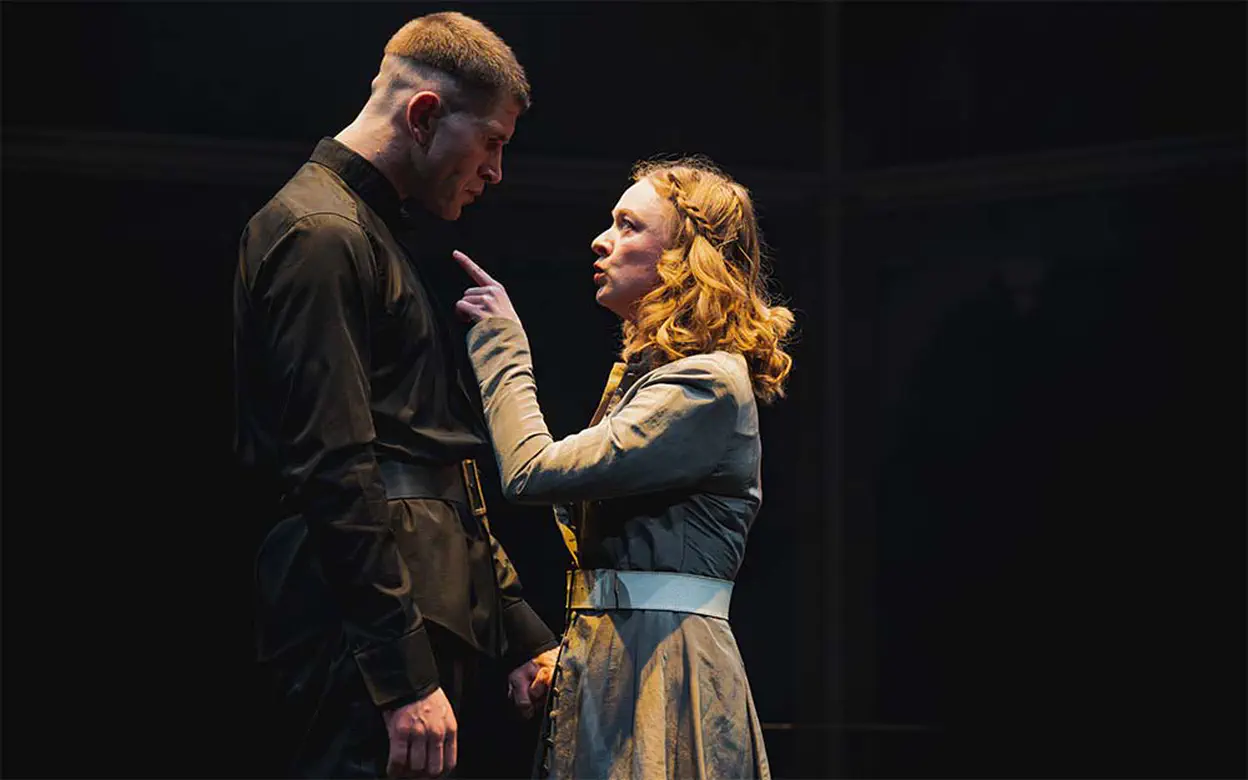
Laura Smithers as Margaret Beaufort was also exceptional, as she navigated the multifaceted aspects of the character perfectly. The religious fanatic side to her personality, along with the insistence that she had a strong claim to the throne, were evident in Smithers characterisation, but so to was the ruthlessness without being too apparent. The colder, calculating side to the character was effortlessly downplayed so that you almost felt sorry for Margaret Beaufort. Almost.
This production was performed in the round which is our favourite layout for The Cockpit Theatre at Shakespeare North Playhouse. The staging was simple in that there were two, slightly elevated step sections along with a middle grave area that was revealed at the finale. With the exception of crosses brought onto the stage and a stool there was no other scenery, so the focus was very firmly on the cast throughout. This also created an atmosphere in which you were able to make your own decisions on the historical record based on the actions of each character, rather than being influenced by a busy set.
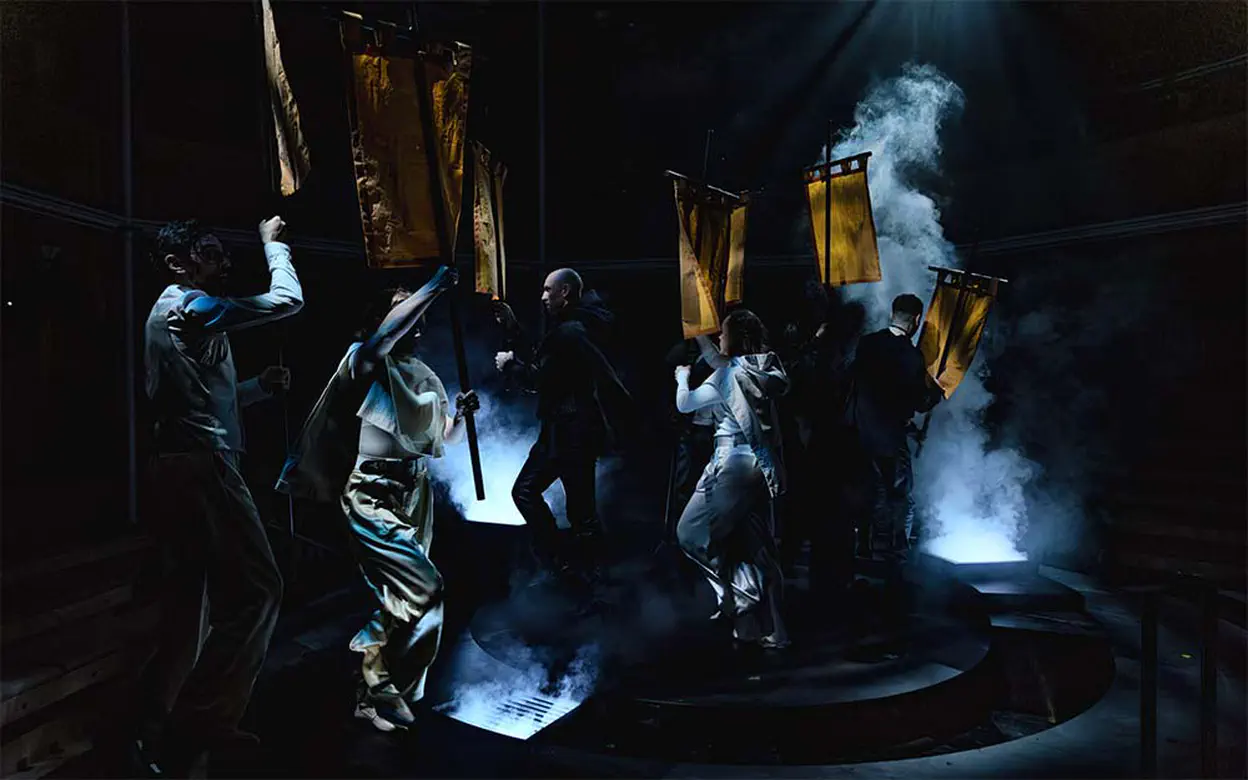
One of the most powerful scenes in the show is the final battle scene. Kyle Rowe throws himself around the stage, ripping down fabric from standards that then become crosses to signify the lives he is taking on the battle field. The entire scene was spectacular, and the physicality of Rowe really left the audience holding their breath. Everyone knew what the eventual outcome would be, but didn’t want that moment to come.
The direction by Katie Posner is captivating throughout. There’s a lot of history to get through in the play, but the pacing never felt rushed; every moment was given the appropriate amount of time for the audience to enjoy. There is also a lot of comedy which is not something we expected, but also doesn’t feel sandwiched in or detracting from the drama of the play. The round up of who each character was, with them holding up their name on a piece of parchment as History gave a brief overview, was a clever way to make sure the audience all had the same starting point of understanding. An interactive element, with History getting progressively quicker in his delivery meaning the actors had to move at pace could have bordered on cheesy but instead felt like an energetic history teacher throwing himself into the subject; perfect for the character of History at that point in the play, before his own journey of discovery.
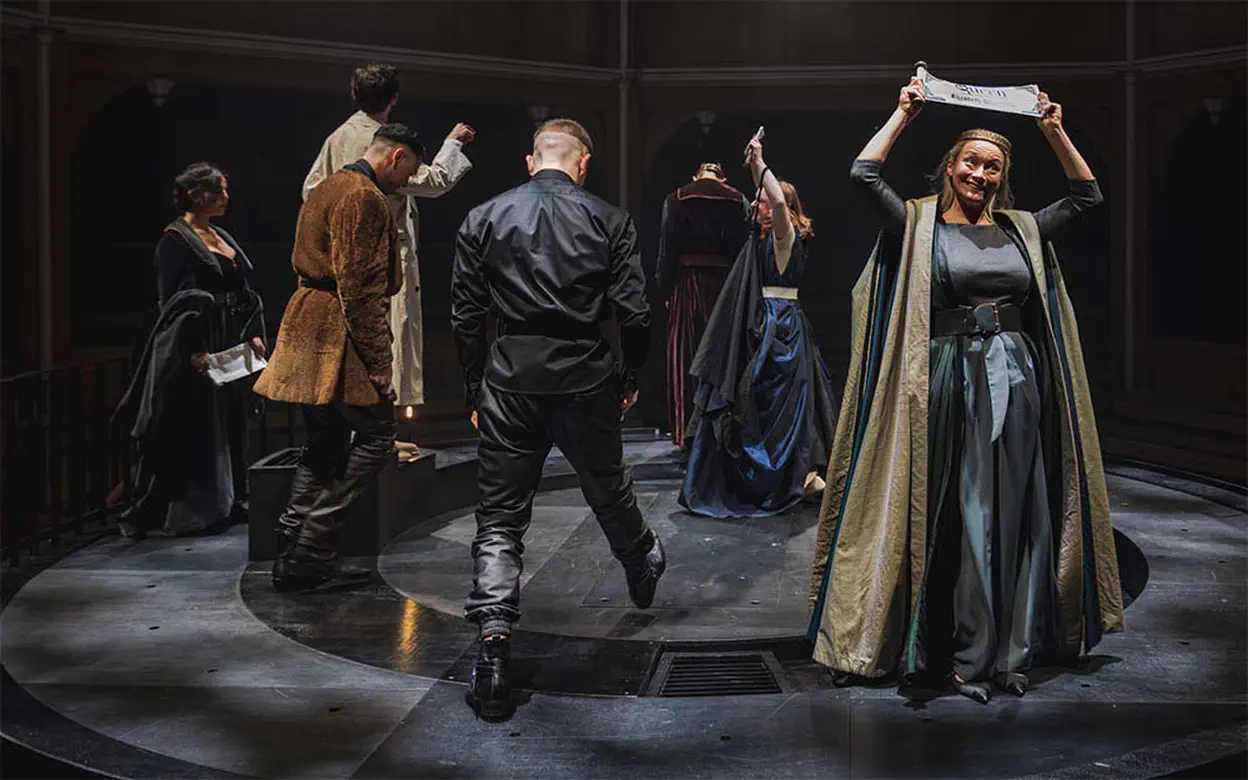
This is one of the best pieces of theatre we have ever seen. The production deserves a full UK tour so that audiences across the country can experience just how phenomenal every element of this play is. You would be forgiven for thinking that this was Philippa Gregory’s hundredth play rather than her debut, as she appears to have perfectly stepped into the role of playwrite with absolute ease. An outstanding piece of theatre by everyone involved, and a fantastic way to question the historical record and the role of women throughout history.
The show is on at Shakespeare North Playhouse until 30 March 2024 before going to The Theatre Royal in Bury St. Edmunds between 11th and 27th April.
Originally posted: